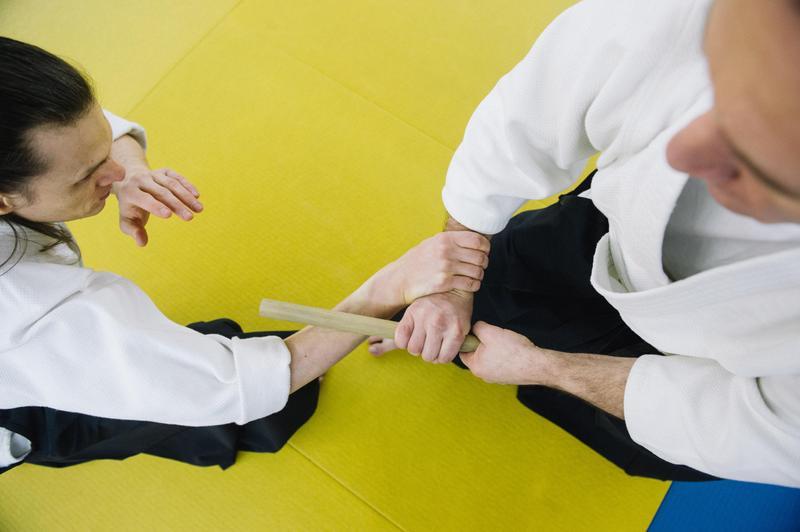Philosophy of Aikido: Understanding the Martial Art's Principles and Ideals
Philosophy of Aikido: Understanding the Martial Art's Principles and Ideals
Aikido is a Japanese martial art developed by Morihei Ueshiba in the early 20th century. Unlike other martial arts, it emphasizes peaceful resolution of conflicts rather than domination of opponents. Non-violence, compassion and respect for every living being are fundamental principles of Aikido.
Aikido focuses on the concept of working with the opponent's energy rather than against it. By using circular motion and redirecting the attacker's force, the practitioner can suppress aggression without causing damage. These techniques emphasize disarming the enemy rather than inflicting damage to maintain control and allow for a peaceful resolution.
The philosophy of Aikido goes beyond martial arts gymnastics. It emphasizes the importance of cultivating peace of mind and fostering a spirit of harmony and cooperation in all areas of life. Practitioners of Aikido strive to live in ways that promote peace, compassion and understanding, both in themselves and in their interactions with others.
The Origins of Aikido
The Life of Morihei Ueshiba
Morihei Ueshiba, also known as O-Sensei, was born on December 14, 1883, in Tanabe, Japan. He was the youngest of five children and was raised in a family of farmers. Ueshiba began his martial arts training in his youth, studying various styles such as kendo, jujutsu, and sumo. In 1912, he moved to Hokkaido, where he began to develop his own martial art, which he called aikido.
Ueshiba's spiritual beliefs were a significant influence on the development of aikido. He was deeply influenced by the Omoto-kyo religion, which taught that all human beings are inherently divine. Ueshiba believed that aikido was not just a martial art but a means of achieving spiritual harmony with the universe.
**The Development of Aikido
**
The development of aikido was a gradual process that spanned several decades. In the early years, Ueshiba focused on developing the physical techniques of aikido. He combined elements of various martial arts styles, including jujutsu, judo, and swordsmanship, to create aikido's unique techniques.
As Ueshiba's spiritual beliefs became more central to his practice, he began to focus more on aikido's philosophical aspects. He believed that aikido was not just a means of self-defense but a way of achieving inner peace and harmony. Ueshiba emphasized the importance of developing a strong spirit and cultivating a peaceful mind.
In the 1930s, Ueshiba moved to Tokyo, where he founded the Aikikai Foundation, which remains the headquarters of aikido today. He continued to refine and develop aikido until his death in 1969.
Overall, the origins of aikido are rooted in Morihei Ueshiba's life and spiritual beliefs. His focus on achieving spiritual harmony through martial arts led to the development of aikido, which emphasizes the importance of cultivating inner peace and harmony.
The Philosophy of Aikido
Aikido is a Japanese martial art that emphasizes the concept of non-resistance and the use of an opponent's energy against them. The philosophy of Aikido is centered around the idea of harmony and the pursuit of peace, both within oneself and in the world at large.
The Principles of Aikido
The principles of Aikido are based on the idea of blending with an opponent's energy and redirecting it in a way that neutralizes their attack without causing harm. Aikido practitioners strive to maintain a calm and centered state of mind, which allows them to respond to attacks with clarity and efficiency. The principles of Aikido also emphasize the importance of humility, respect, and compassion towards others.
The Concept of Ki
The concept of Ki, or life energy, is central to the philosophy of Aikido. Aikido practitioners believe that Ki flows through all living things and that by cultivating and directing this energy, they can achieve greater harmony and balance in their lives. The practice of Aikido involves developing a heightened awareness of Ki and learning to use it in a way that promotes peace and harmony.
The Importance of Harmony
Harmony is a key concept in Aikido philosophy, both in terms of physical technique and in one's approach to life. Aikido practitioners seek to create a sense of harmony and balance in all aspects of their lives, including their relationships with others and their connection to the natural world. Through the practice of Aikido, individuals can cultivate a deeper understanding of themselves and their place in the world, leading to a greater sense of peace and fulfillment.
In summary, the philosophy of Aikido emphasizes the importance of non-resistance, harmony, and the pursuit of peace. By cultivating a calm and centered state of mind, developing an awareness of Ki, and striving towards greater harmony in all aspects of life, individuals can achieve a greater sense of balance and fulfillment.
Be the first to post a message!
